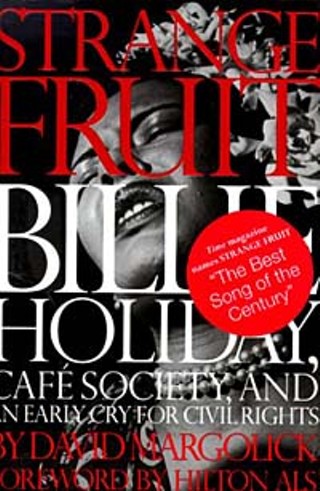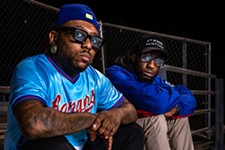Strange Fruit: Billie Holiday, Cafe Society, and an early Cry for Civil Rights
Reviewed by Jay Trachtenberg, Fri., July 21, 2000

Strange Fruit
Billie Holiday, Cafe Society, and an Early Cry for Civil Rightsby David Margolick
Running Press, 144 pp., $16.95
Time magazine recently proclaimed it the best song of the century. Influential jazz writer Leonard Feather called it "the first significant protest in words and music, the first unmuted cry against racism." To this day, more than 60 years after its introduction by Billie Holiday at NYC's trendy Cafe Society in 1939, the lyrics to "Strange Fruit" bring chills to the spine with their unabashed depiction of lynching in the South. Margolick's intriguing sociopolitical history, an extensive extrapolation of his September 1998 Vanity Fair article, examines the evolution of this visceral song (written by an activist NYC public school teacher, Abel Meerapol) within the context of the jazz community, leftist political circles, the racial climate of various eras, and even national politics. Of particular poignancy is the intense emotional effect "Strange Fruit" has wrought on the many singers and musicians, black and white, who have performed or recorded the song. In the case of folk singer Josh White, his insistence on including the song in his repertoire over the years resulted in an appearance before the House Un-American Activities Committee during the McCarthy era. At the storm's center, however, stands singer Billie Holiday, who is most closely associated with putting the song into the social consciousness and whose tragic life and career, in many ways, came to be defined by the song. A "strange and bitter crop," indeed.










